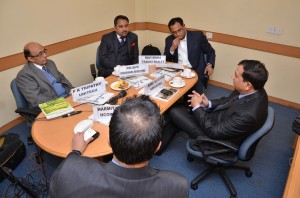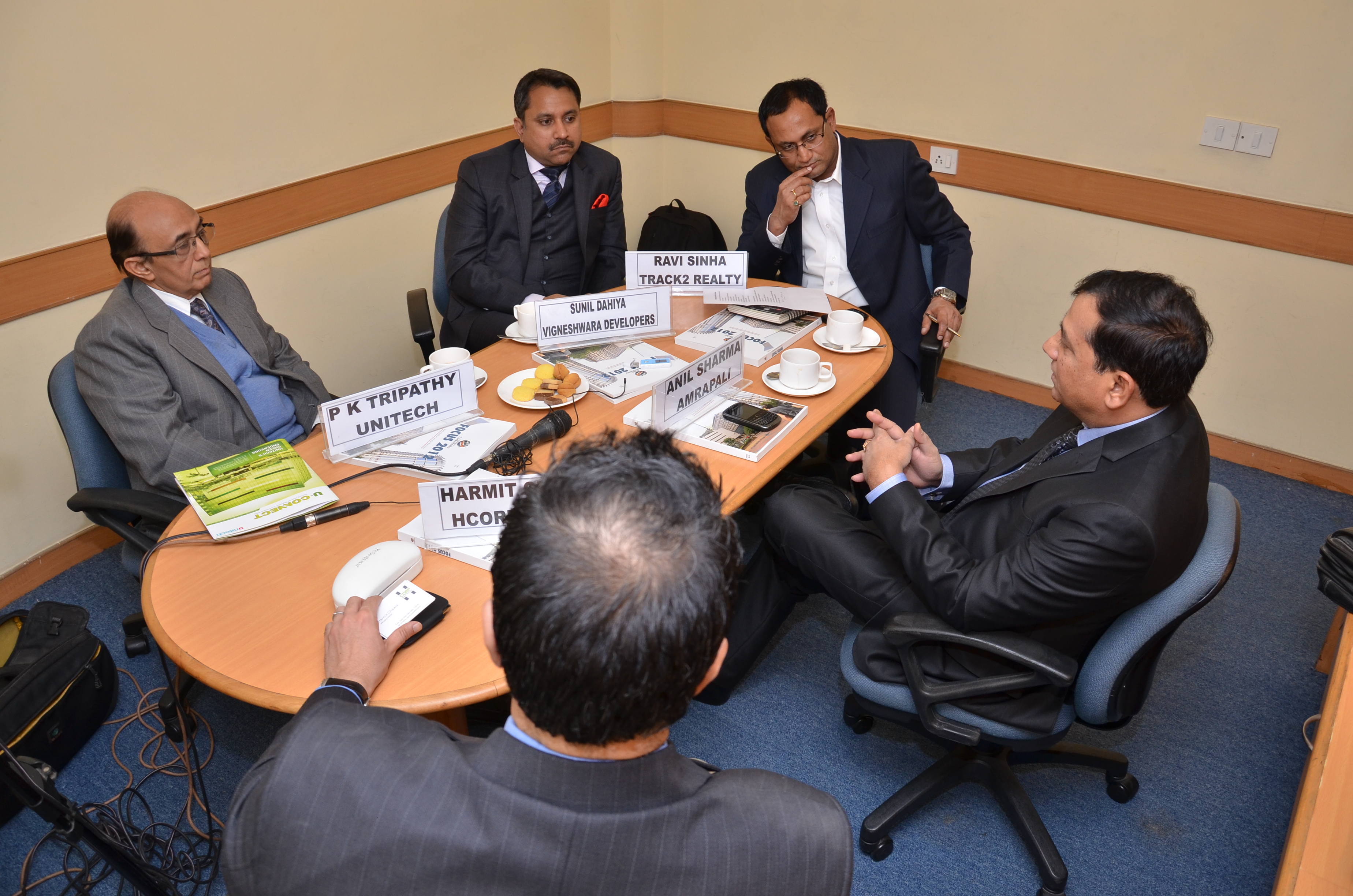 Panelists—Dr Anil Sharma, CMD, Amrapali Group
Panelists—Dr Anil Sharma, CMD, Amrapali Group
Sunil Dahiya—Sr Vice President, NAREDCO & MD Vigneshwara Developers
Harmit Chawla—MD, HCorp Realty
PK Tripathi—President, Unitech
Moderator—Ravi Sinha, CEO & Managing Editor, Track2Realty
Ravi Sinha: I think Mr Tripathi has a very valid point that the CCI has emerged. You have also seen the wrong side of consumer activism in a Noida Extension kind of a situation. When we think of reforms, government is looking for a regulator and a whole lot of sector’s wish list has not gone down well with the government. Do you think that the sector will move ahead with some sort of reforms in the year ahead?
Anil Sharma: See, in fact I am very positive about the regulatory bill, but when I went through the draft bill I found there are a lot of things left to be addressed. Not only the CCI, the imposition of service tax, sales tax in certain states, GST and a lot of other taxes like excise, import duty, income tax, impact of all this is being felt. So, if you are facing a lot of regulatory bodies while getting approvals, why don’t we think of one regulator who can regulate everything as in the Regulatory Act Bill? There is no need of CCI, consumer forum etc., have one taxation system.
If there is the real estate regulator, it should not target only the consumers’ problems but parallel emphasis should be given to the developers, so that the industry can move ahead smoothly. But some of the regulations which are already on the discussion table, if that come in 2013, the industry would definitely perform better.
Ravi Sinha: One regulator, single window clearance, industry status, these have been oft-repeated demands. Do you think this is practically feasible keeping in mind the fact that land is a state subject?
Harmit Chawla: You can have single window state wise. In the national perspective, I have my doubts and I don’t think it can happen. It is not that it can’t happen, but it comes across lots of friction at different level where land to the point of patwaari is involved. It is bringing too many egos and issues on the drawing board which is not possible. But, each state can make an effort in terms of their policy that once a master plan is coming in, that master plan should have everyone involved from the agriculturalist, to the urban developer to the master planner. There is one window that you have to go to.
In terms of the centre-state relations coming in between, I think that is going to be persistent. The way this federalism point has been thrown up in the last one and a half years, land is such a precious commodity that I really don’t think that state is going to give any kind of leverage to the center.
Ravi Sinha: Having said that, the fact of the matter is that Land Acquisition Bill and Real Estate Regulator Bill are now inevitable. So what are the positives that you see in these two bills, since they are going to reshape the eco system of the business ahead?
PK Tripathi: The centre has to realise that there are certain action points that are with the states and the states are not going to leave it. Having realised that, the role of the central government in any regulatory bill will be restricted to the laying down the policies for environmental clearance or approvals from central government authorities like airport authorities. All these things through technology can be made automatic. Now once you make that automatic that means that you don’t have to worry. You just apply and you should get it within a certain framework of time.
Then comes the real issue as far as the state government is concerned. State government will have to come out with their own regulatory authorities. Once they have that, then the people will know that it is possible because it is only the state departments involved. So, both will have to go together and restrict their area of indulgence.
Harmit Chawla: What I think is over and above the regulatory bill, there is a need for a proactive real estate programme which can be with the centre so the centre describes that this is how real estate in India should be developed.
…..to be continued





